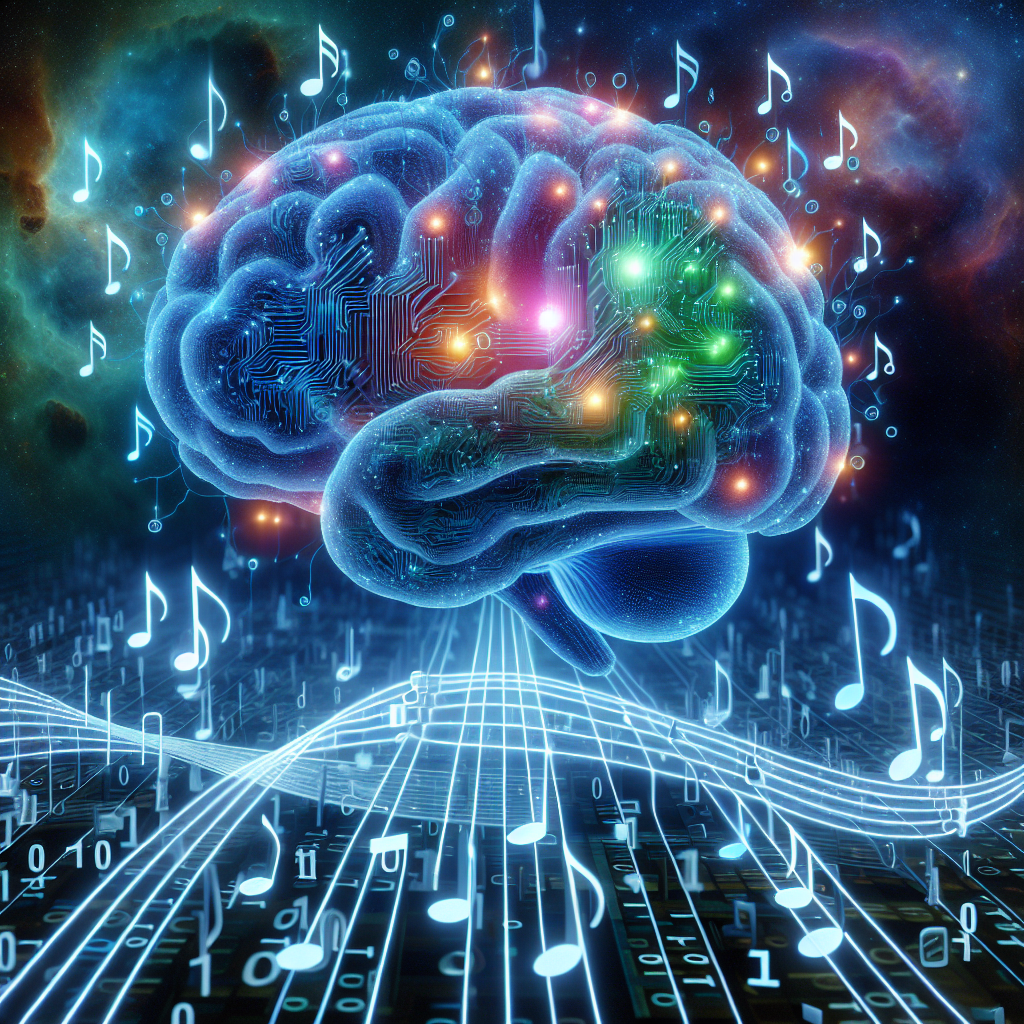Unleashing Creativity: How AI is Revolutionizing Music Composition
Music has been a fundamental part of human culture for centuries, serving as a form of expression, entertainment, and emotional connection. Through music, artists have been able to convey their thoughts, feelings, and experiences to listeners around the world. However, the process of creating music has traditionally been a time-consuming and challenging task, requiring a high level of skill and creativity.
In recent years, artificial intelligence (AI) has emerged as a powerful tool for revolutionizing music composition. AI has the potential to unlock new levels of creativity, enabling artists to push the boundaries of what is possible in music production. By harnessing the power of AI, musicians can now explore new sounds, experiment with innovative compositions, and create music that pushes the boundaries of conventional genres.
One of the key ways in which AI is revolutionizing music composition is through the use of generative algorithms. These algorithms are designed to generate new musical ideas by analyzing existing music and creating new compositions based on patterns and trends in the data. By using generative algorithms, artists can quickly generate a wide range of musical ideas, helping them to overcome creative blocks and explore new avenues of creativity.
Another way in which AI is transforming music composition is through the use of machine learning techniques. Machine learning algorithms are capable of analyzing vast amounts of data and identifying patterns and trends that human composers may not be able to detect. By using machine learning, artists can gain new insights into the structure of music and create compositions that are more complex and innovative than ever before.
AI has also made it possible for musicians to collaborate with intelligent systems that can help them to compose music more efficiently. These systems can analyze a composer’s ideas and provide real-time feedback, helping artists to refine their compositions and make creative decisions more quickly. By working together with AI systems, musicians can take their compositions to new heights and unlock new levels of creativity.
In addition to aiding in the composition process, AI is also revolutionizing the way that music is produced and distributed. AI-powered platforms such as Amper Music and AIVA are making it easier than ever for artists to create high-quality music without the need for expensive recording equipment or studio time. These platforms allow musicians to generate custom compositions in a matter of minutes, providing them with endless possibilities for experimentation and creativity.
Moreover, AI is also changing the way that music is consumed by listeners. Streaming services such as Spotify and Apple Music are using AI algorithms to recommend personalized playlists to users based on their listening habits and preferences. By harnessing the power of AI, these services are able to deliver a more personalized and engaging music experience to listeners, helping them to discover new artists and genres that they may not have otherwise encountered.
Overall, AI is revolutionizing the music industry in ways that were previously unimaginable. By unleashing the power of AI in music composition, artists can now explore new sounds, experiment with innovative compositions, and push the boundaries of what is possible in music production. As AI continues to evolve, the possibilities for creativity in music are truly limitless.
FAQs:
Q: Can AI really be creative in composing music?
A: While AI may not have emotions or consciousness like humans, it can still generate creative and innovative musical compositions by analyzing existing music data and identifying patterns and trends.
Q: Will AI replace human musicians in the music industry?
A: AI is not meant to replace human musicians, but rather to assist them in the creative process. Human musicians bring a unique perspective and emotional depth to their compositions that AI cannot replicate.
Q: Is AI capable of composing music in different genres?
A: Yes, AI is capable of composing music in a wide range of genres by analyzing existing music data and generating new compositions based on the patterns and trends in the data.
Q: How can musicians incorporate AI into their creative process?
A: Musicians can incorporate AI into their creative process by using AI-powered platforms such as Amper Music and AIVA to generate custom compositions, collaborate with AI systems to receive real-time feedback, and explore new sounds and genres in their music production.
Q: What are the potential benefits of using AI in music composition?
A: Some potential benefits of using AI in music composition include overcoming creative blocks, exploring new avenues of creativity, gaining new insights into the structure of music, and creating compositions that are more complex and innovative than ever before.
